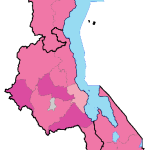The New Alliance Policy Acceleration Support Program undertook a survey June - August 2015 to inform government and other stakeholders in Malawi’s agricultural sector on how these policy processes might be improved. The sample of stakeholders who participated are involved in the processes through which agricultural and food security policy and programs are formulated and […]
Policy Note 23: The national extension policy of Malawi – lessons from implementation
The Government of Malawi put in place the National Extension Policy in 2000 to promote the provision of quality agricultural extension services. Fifteen years after its introduction, while action has been taken on some components, many key elements of the policy remain largely unimplemented. This note outlines the evidence on why much progress has not […]
Policy Note 22: Is Malawi’s mix of maize market policies ultimately harming food security?
High levels of poverty and food insecurity combined with weak food markets have prompted many African governments for political and socioeconomic reasons to assume the responsibility of ensuring adequate domestic food supply at reasonable prices. Malawi is no different, with significant government intervention in the maize market on both the production and marketing sides. Interventions […]
Policy Note 21: Promoting Exports of Low-Aflatoxin Groundnut from Malawi
Malawi’s National Export Strategy is built on the premise that the promotion of exports and domestic value addition can contribute to economic growth and poverty reduction in a meaningful way. Groundnut shows particularly high potential because regional demand is strong and Malawi’s farmers are already quite familiar with improved methods for growing the crop. In spite of institutional weaknesses that make exporting time […]
MaSSP Report: Mapping the Linkages between agriculture, food security and nutrition in Malawi
In spite of rapid small-holder led economic growth in Malawi over the past decade, almost half of all children under five years of age in Malawi still suffer from undernutrition. Although some of these children may be getting enough to eat in terms of total calories, few are consuming sufficient quantities of nutrient-rich foods—meat, fish, eggs, […]
- « Previous Page
- 1
- …
- 59
- 60
- 61
- 62
- 63
- …
- 69
- Next Page »

